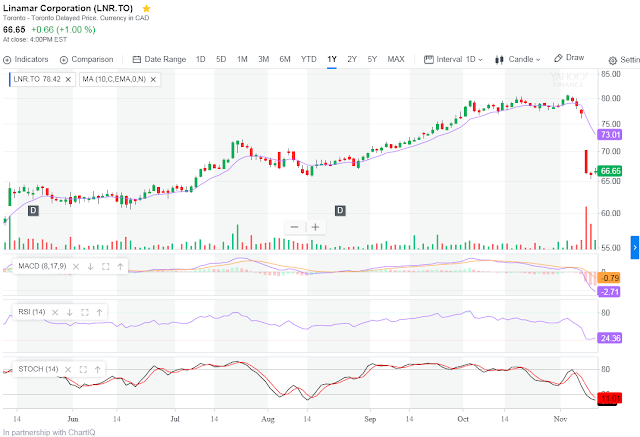Wealth Preservation: Comments From Eric Sprott And More…
“Sooner or later,” said Eric Sprott last week in Toronto, to a room full of investors, “the physical markets will defeat the paper markets.”
Mr. Sprott, who founded and runs Canada’s Sprott Asset Management Co., was on a roll. His argument was, basically, that the stock markets of the world are gamed by the traders and eventually it’ll all fall apart.
One major piece of evidence for the gaming is that most of the daily volume anymore seems to be computerized trading. People (and computers) trade for the sake of trading. There’s neither rhyme nor reason based on fundamentals, let alone the nature of the company whose shares are under the gun.
Mr. Sprott is also concerned at mushrooming growth of derivatives. This part of modern finance is based purely on financial vaporware. There’s no relation to creating underlying wealth. For example, one company might have a trading program with a slightly positive bias, and so buys and sells accordingly. Another has a trading program with a slightly negative bias, and so sells and buys accordingly.
The crazy thing is that, despite everybody looking at the same market, the players all think they’re “making money” with all of their in-and-out trading. Maybe or maybe not — although a lot of people extract big money from the Wall Street system. But the whole process wreaks havoc on the idea of creating wealth by investing in the best companies with the best ideas and assets.
All along, derivative exposure is growing. But what happens when there’s a market setback, and the derivatives trigger? There’s no way that all the exposure can ever get covered. There’s not enough money to go around. We’ll see failure in the derivatives markets, and it will likely tank other parts of the world of finance, if not the larger economy.
This is the context of Mr. Sprott’s comment, that “the physical markets will defeat the paper markets.” You need to own physical assets — precious metals — and other things of real value. It’s why central banks, such as those of Russia, Turkey, Mexico and of course China, are buying gold.
Mr. Sprott’s view is that gold has much further to rise. “Since 2000 gold went from $250 per ounce to over $1,500,” he noted. “That’s a six-fold increase. It could happen again, which would put gold at $9,000 or more.”
It’s not just gold, either. Mr. Sprott is bullish on silver. His medium-term target for silver is $100 per ounce. That’s a triple from current levels.
Read the rest of the article here
Mr. Sprott, who founded and runs Canada’s Sprott Asset Management Co., was on a roll. His argument was, basically, that the stock markets of the world are gamed by the traders and eventually it’ll all fall apart.
One major piece of evidence for the gaming is that most of the daily volume anymore seems to be computerized trading. People (and computers) trade for the sake of trading. There’s neither rhyme nor reason based on fundamentals, let alone the nature of the company whose shares are under the gun.
Mr. Sprott is also concerned at mushrooming growth of derivatives. This part of modern finance is based purely on financial vaporware. There’s no relation to creating underlying wealth. For example, one company might have a trading program with a slightly positive bias, and so buys and sells accordingly. Another has a trading program with a slightly negative bias, and so sells and buys accordingly.
The crazy thing is that, despite everybody looking at the same market, the players all think they’re “making money” with all of their in-and-out trading. Maybe or maybe not — although a lot of people extract big money from the Wall Street system. But the whole process wreaks havoc on the idea of creating wealth by investing in the best companies with the best ideas and assets.
All along, derivative exposure is growing. But what happens when there’s a market setback, and the derivatives trigger? There’s no way that all the exposure can ever get covered. There’s not enough money to go around. We’ll see failure in the derivatives markets, and it will likely tank other parts of the world of finance, if not the larger economy.
This is the context of Mr. Sprott’s comment, that “the physical markets will defeat the paper markets.” You need to own physical assets — precious metals — and other things of real value. It’s why central banks, such as those of Russia, Turkey, Mexico and of course China, are buying gold.
Mr. Sprott’s view is that gold has much further to rise. “Since 2000 gold went from $250 per ounce to over $1,500,” he noted. “That’s a six-fold increase. It could happen again, which would put gold at $9,000 or more.”
It’s not just gold, either. Mr. Sprott is bullish on silver. His medium-term target for silver is $100 per ounce. That’s a triple from current levels.
Read the rest of the article here

Comments